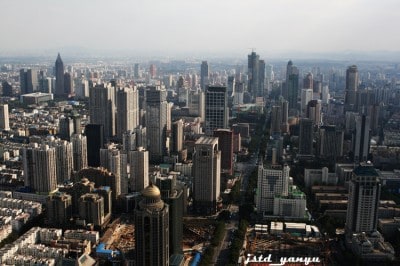Chinese Battery Scandal opens door for Pure Energy


Timing is everything. After six years of reorganizations and restructurings that goes back to Scottsdale Arizona and a company called WildCharge, Pure Energy Vision Corp (TSXV:PEV) looks to finally have momentum on it side.
On July 27th Pure, which is now based in Boulder, Colorado (the Canadian connection is the company’s 2009 merger with Pure Energy Visions, a Canadian manufacturer and distributor of secondary or rechargeable batteries and chargers) signed a deal with China’s Linyi City Huatai Battery Industrial Corp to produce and market Pure Energy’s patented rechargeable alkaline batteries, which it markets under the brand RAMcell, to the Chinese domestic retail and original-equipment-manufacturer markets.
The joint venture will result in a new company, to be named Linyi Huatai Pure Energy Company, which will be located in a new 6,000-square-metre facility in Linyi, a city of more than 10 million people in the Shandong province, in the southwestern part of China.
While the newly reorganized Pure was in the early stages of finding a market for its universal wire free charging pads and environmentally friendly Alkaline Manganese batteries, the merger is perhaps only half the reason Pure shareholders might be optimistic about the company’s chance of entering the Chinese market swiftly and successfully.
The other reason is a poisoning scandal that is rocking China’s battery producing regions. On May 18th, China’s Ministry of Environmental Protection issued an order to local governments to closely watch lead-acid battery manufacturers.
Two days earlier, the legal representatives of the Zhejiang Haijiu Battery Company were detained after more than 300 people near a plant were found to have elevated levels of lead in their blood. The Financial Times reports that more than 4,000 people were found to be affected by more than 20 lead poisoning scandals in China since 2009 alone.
Until this year, China had produced a quarter of the lead-acid batteries in the world. But the Chinese government, as of August 5th, had shut down a total of 583 lead-acid battery manufacturing plants.
China might seem an unlikely candidate to spark an environmental movement, indeed, the move to find alternatives to lead-acid batteries is a worldwide one. While more than 97% of all battery lead in North America is recycled even the 3% or so left can be a problem because lead is so highly toxic. Tiny amounts of lead can cause kidney and brain and damage and learning problems in children.
Environmental concerns are a major reason the rechargeable battery market is set to reach $16.4 Billion by 2015, according to a report by San Jose based research firm Global Industry Analysts.
Shares of Pure Energy Vision Corp closed Friday at $0.295, down 7.8% as 43,075 shares changed hands.
_________________________________________________________________________________
__________________________________________________________________________________
Nick Waddell
Founder of Cantech Letter
Cantech Letter founder and editor Nick Waddell has lived in five Canadian provinces and is proud of his country's often overlooked contributions to the world of science and technology. Waddell takes a regular shift on the Canadian media circuit, making appearances on CTV, CBC and BNN, and contributing to publications such as Canadian Business and Business Insider.


